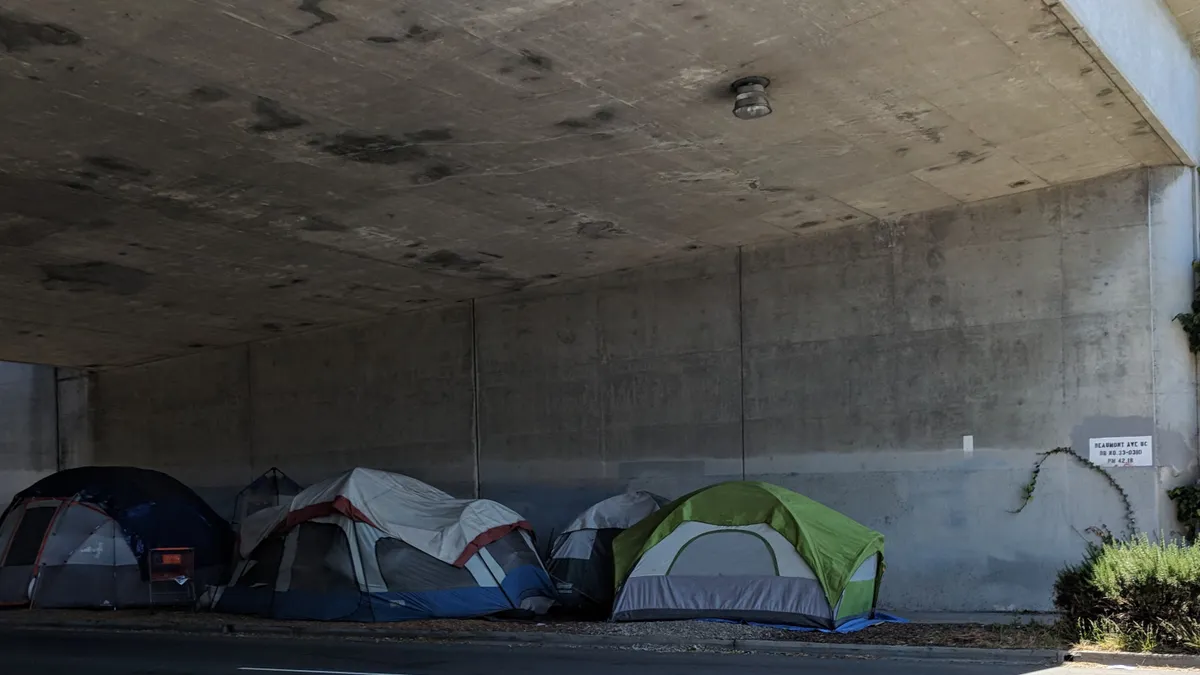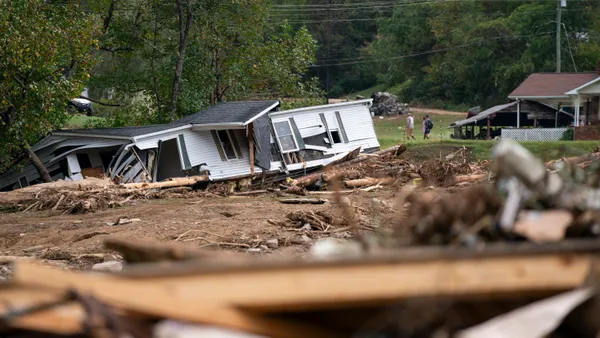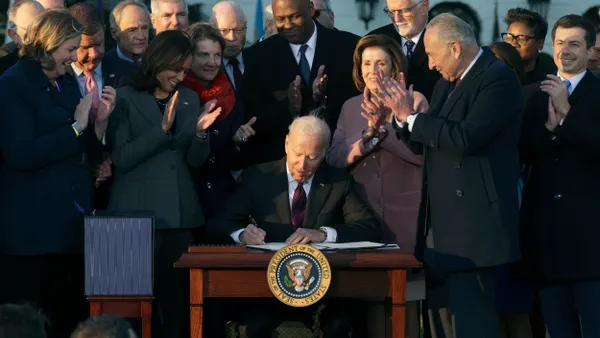Dive Brief:
-
The novel coronavirus pandemic will result in an extra 1.5 million U.S. households becoming extremely low-income, said National Low Income Housing Coalition President and CEO Diane Yentel on a recent National League of Cities (NLC) webinar.
-
Pre-pandemic, there were over 500,000 people without homes and a shortage of 7 million homes for the lowest income families, Yentel said.
-
Extremely low-income renters and people living in poverty are disproportionately people of color, and cities are already seeing that demographic disproportionately affected by the coronavirus, according to Yentel. "Housing is healthcare," she said. "We can't contain the pandemic until every one of us is able to isolate at home."
Dive Insight:
Housing the unsheltered has become an urgent priority for cities as stay-at-home orders sweep the country. About 37% of the country's homeless population has no shelter at all, said National Alliance to End Homelessness President and CEO Nan Roman on the webinar. That figure is also estimated to be a pretty significant undercount, according to Roman.
"The best thing that cities can do to help unsheltered people is to get them into some kind of shelter or accommodation in accordance with the CDC guidelines," she said.
Unsheltered people experiencing homelessness are particularly vulnerable to the virus due to a lack of various factors such as access to proper hygiene, masks, physical space and information about the virus. They are also more vulnerable due to underlying health conditions, according to Roman. In fact, people experiencing homelessness age physiologically earlier than their chronological age, she said.
New York City, for example, has plans to relocate 6,000 of its residents experiencing homelessness from shelters into hotels. Priority placements will be given to seniors and people with symptoms of COVID-19 or people who have tested positive, according to CBS New York.
San Francisco is also urgently moving people experiencing homelessness to hotels and out of its largest shelter, where 70 people recently tested positive for the coronavirus, according to CBS San Francisco. Colorado Springs, CO has converted an auditorium into an isolation shelter for up to 100 people experiencing homelessness, and Austin, TX and New London, CT have also created new spaces to house homeless groups.
However, not all cities have secured sufficient space for people experiencing homelessness without drawing criticism. City officials in Las Vegas, for example, created a controversial emergency homeless shelter in a parking lot with boxes carved out in white paint for people to stay at a distance.
Once individuals are sheltered in housing options like hotels or motels, cities still need to consider the additional services required such as staffing, security and meals. Some cities are contracting with restaurants to help provide food, or hotels can rehire staff to help with food distribution, Roman said.
There's also a lack of information about infection rates among homeless populations, according to Roman. Cities should consider conducting random sample testing among homeless populations to understand the infection rate and scale up resources accordingly, she said.
The total cost to care for unsheltered people experiencing homelessness in the country is $11.5 billion, according to a recent report from university researchers. The alliance requested $11.5 billion for homeless services from the last stimulus bill, according to Roman, but $4 billion was allotted for homeless assistance instead.
To keep up with all of our coverage on how the new coronavirus is impacting U.S. cities, visit our daily tracker.











